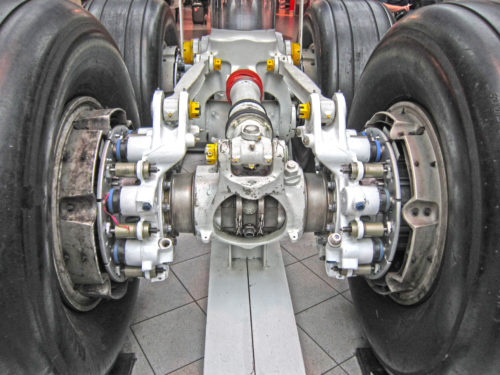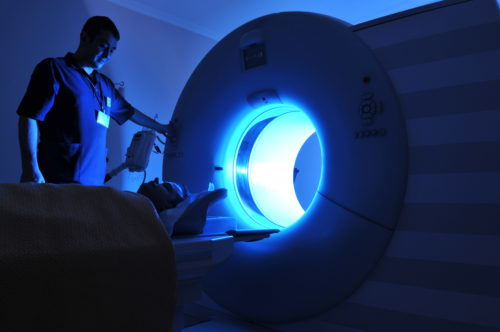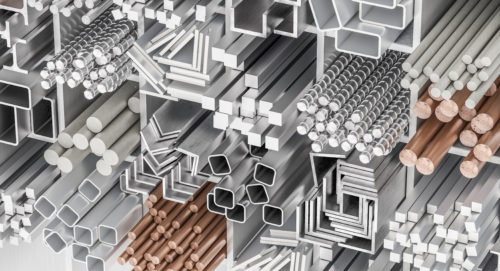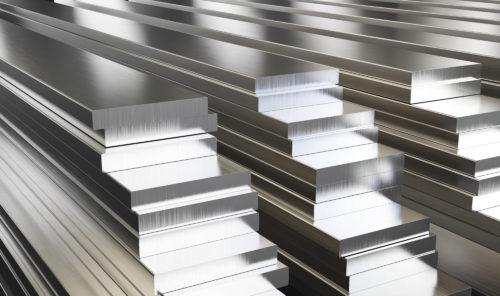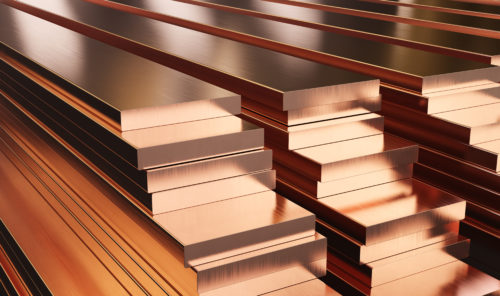How Do Industries Use CNC Machining?
Leave a CommentComputer numerical control (CNC) machining is responsible for producing precision custom parts for a variety of demanding industries. Depending upon the particular industry and application, accuracy prevents component failure that could result in expensive downtime, employee injuries, and more. CNC machine tools—including mills, lathes, plasma cutters, electric discharge machines (EDM), and water jet cutters—enable the reliable and consistent production of parts for virtually every industry sector.
CNC machining provides many advantages over traditional machining, including:
- Improved worker safety
- Reduced labor costs
- Higher part accuracy
- Error-free setup
- Visualization eliminates test runs
- Higher cutting parameters
- Increased tool flexibility
In this blog post, we’ll discuss some ways that various industries use CNC machining.
Aerospace Industry
The aerospace industry is one in which the accuracy and consistency of machined parts are absolutely critical. CNC machines can create complex parts and individual prototypes within the tightest tolerances, which is essential for parts used in aircraft and spacecraft. Examples of commonly machined aerospace components include:
- Landing gear parts
- Antennae
- Bushings
- Airfoils
- Electrical connectors
- Manifolds
- Radio frequency suppression materials
CNC machining allows aerospace OEMs and suppliers to meet the strict quality and safety standards held by their industry. Aerospace manufacturers rely heavily on 5-axis machines for superior cutting speed, finishes, and efficiency for many of the smaller components required used in aerospace equipment.
Automotive Industry
In the automotive industry, computer control and automation facilitate tasks like drilling and boring, giving more options for production and prototyping. CNC-machined auto parts ultimately improve the functionality, reliability, and power of vehicles. Modern automotive manufacturers rely on CNC machining for a variety of solutions, including:
- Interior panels
- Engine parts
- Lighting components
- Suspension components
- Exhaust system components
- Fluid system components
Marine Industry
Waterborne equipment requires the use of corrosion-resistant materials due to constant exposure to humidity or direct contact with water. This includes a variety of marine-grade metal materials, such as steel, copper, and brass. CNC machining frequently provides marine parts such as:
- Insulating cases
- Electronic parts
- Boat parts
- Propellers
- Engine components
- Prototype molds
This versatile machining method produces durable and corrosion-resistant marine components for marine equipment ranging from small boats to large shipping vessels.
Medical Industry
CNC machining solutions offer increased precision and enhanced repeatability when creating medical instruments, orthotics, and surgical implants. Additional benefits of CNC machining for the medical sector include an ability to produce detailed automated reports necessary for product tracking and FDA process approval, compatibility with specialized medical materials, and quick prototyping that speeds time to market for new solutions.
CNC machining enables the creation of numerous precision medical devices such as:
- Implants
- Electrical parts
- Orthotic devices
- Medical instruments
- Electronic enclosures for monitoring devices
- Research equipment
- Shielded enclosures
- MRI machines
- Customized sterile packaging
Benefits of Partnering With EMC Precision
Since 1925, our family-operated precision machining company has maintained industry-leading attention to accuracy, repeatability, and precision, along with a focus on innovation and technology. We are a Lean manufacturing facility dedicated to best practices at every level of our business.
EMC Precision’s dedication to excellence through continuous improvement is reinforced through our commitment to integrity, teamwork, and superior service for everyone involved. These values have built a strong culture that ensures your custom products are delivered on time, with extremely low defect rates, and at the lowest possible cost.
We support customers in numerous industries with our precision-machined products and assemblies. Our partners count on us for a full range of turning and milling capabilities that conform to the tightest tolerances. To see how our CNC machining services can support projects in your industry, please contact us today.
A Guide to CNC Machining Materials
Leave a CommentCNC machining is a highly repeatable and accurate manufacturing process for creating parts ranging from prototype to high-volume production runs. CNC tooling uses pre-programmed instructions to cut a solid block of material into the desired part. The versatility of this process makes it suitable for a wide range of applications and their specific requirements. While CNC machining is adaptable, it’s important to start with the right material to achieve the desired finished product.
Material Selection Process
It can be a challenge to figure out which material is the perfect fit for your application. To ensure that your material selection is best for your specific project, it is crucial to follow these steps:
1.Define material requirements. Material selection begins with defining your material requirements. Consider factors such as the electrical and environmental conditions of your application, part size requirements, desired mechanical properties, cosmetic preferences, and cost requirements.
2.Identify top material candidates. Once you have defined your material requirements, narrow down your selection to materials that fulfill those needs.
3.Select the final material. Once you have identified your top material candidates, it’s time to make the final decision. This might mean a compromise between two or more material requirements.
Common Materials Used for CNC Machining
Choosing the material for your CNC machining project can be challenging, so it can be extremely beneficial to consult an expert. Experts can understand your project and its specific requirements and suggest an appropriate material.
Some of the most common materials used in CNC machining include:
Aluminum
Aluminum is a cost-effective, versatile material that is easily machined, making it suitable for a wide range of machining projects. It has a good strength-to-weight ratio, and machining for aluminum parts is quicker than other materials. Although it’s weaker than steel, anodizing aluminum adds a hard, protective layer.
Brass
Because of its highly polished look that’s similar to gold, brass is often found in cosmetic applications, such as architecture projects. It’s easy to machine due to its stability and low strength. Brass is also a good choice for low friction applications because of its electrical conductivity.
Carbon Steel
Considered mild-grade steel, carbon steel is stronger, tougher, and cheaper than stainless steel. It’s easy to machine and weld and is commonly used for industrial applications requiring a high degrees of toughness and strength. Carbon steel can also be heat treated to enhance hardness.
Copper
Regarded as the best electrical conductor, copper is perfect for various automotive applications such as cooling and heating exchanges. Copper also features good corrosion resistance, and its thermal conductivity makes it easily shaped during CNC machining.
Nickel
Nickel is a difficult alloy to a machine, as it produces high levels of heat when cut, and its strength provides resistance to metal removal. However, this material is desirable due to its aqueous corrosion resistance and strength.
Titanium
Titanium has a high melting point making it ideal for a wide range of industries, including aerospace and medical. This strong but lightweight metal is a good conductor of heat, and its corrosion resistance properties provide protection against salt and water.
Stainless Steel
Stainless steel comes in many grades and features great corrosion and wear resistance, high strength, and good ductility. This material is easily machined, welded, and polished, and its desirable features make it ideal for the aerospace and automotive industries.
CNC Machining with EMC Precision
CNC machining is popular across a wide variety of industries, and choosing the right material is crucial in ensuring a quality finished product. At EMC Precision, our CNC machining capabilities include a wide range of materials to suit the various needs of our customers. With a lineup of advanced CNC machining equipment and a commitment to precision, we can handle machining projects ranging from prototype orders to high-volume production runs.
For help finding the right material for your CNC machining project, contact us today, or request a quote to start your order.










